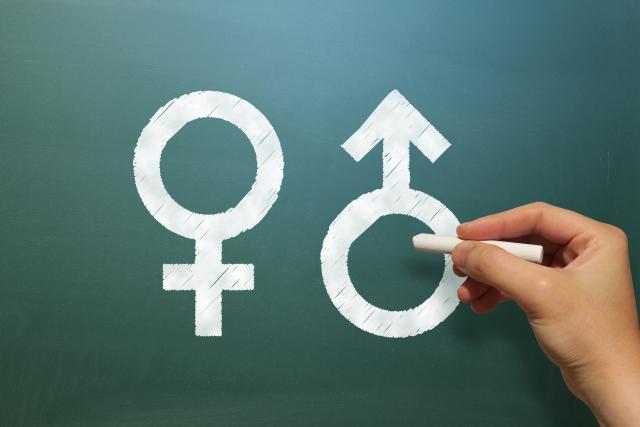– Enam-ur-Rahman (M.Sc. Botany, AMU)
The idea that men and women are companions, not competitors, is a simple yet powerful statement. It challenges the fundamental roots of feminism, which often portrays men as oppressors and women as victims. Feminist writers frequently use terms like “misogyny” and “patriarchy” to argue that women are systematically exploited by men in society. While feminism has played an essential role in advocating for women’s rights, it has also led to some unintended consequences.
Societies that have embraced feminism, such as those in the West, now face challenges like the breakdown of family structures, increasing rates of single parenthood, and strained gender relations. In the United States, for example, the growing percentage of single mothers has introduced both social and economic challenges. By casting men and women as rivals, feminism overlooks the natural complementarity between the sexes. This article will explore the physical, physiological, and psychological differences between men and women and examine how recognizing these differences can lead to greater fulfillment and a more harmonious society.
Recent advancements in research and development in science and technology have profoundly enhanced our understanding of the universe, allowing us to explore its fundamental laws and the intricate structural organization of diverse life forms, along with their unique purposes and functions. Most importantly, these advancements have deepened our insights into human physiology and psychology.

Men and Women are different in more ways than one, which might not necessarily a bad thing
On average, men tend to have greater muscle mass and strength, while women typically have a higher percentage of body fat, which is essential for reproductive health. Women’s wider hips facilitate childbirth, while men generally have broader shoulders. Men and women differ hormonally as well. Men produce higher levels of testosterone, which contributes to muscle development and aggression. Women have higher oestrogen levels, which play a critical role in reproductive functions. These hormonal differences not only impact physical capabilities but also influence health outcomes, with men more prone to heart disease at younger ages and women more susceptible to autoimmune diseases. Studies suggest that men and women exhibit different cognitive strengths and behavioral patterns. Women tend to excel in verbal communication and emotional intelligence, while men often perform better in spatial tasks and problem-solving. These differences can influence social dynamics, relationships, and workplace interactions. It’s heartbreaking to see how modern feminism picks and chooses its battles, using science when it suits them—especially in criticizing the tradition and culture—while ignoring the natural, beautiful differences between men and women when they don’t align with their views.
From its inception, particularly in its more radical forms, feminism has often led to societal upheaval. In today’s world, although children have access to material comforts, they often lack the love, affection, and stable environments necessary for emotional and psychological development. In societies influenced by extreme feminist ideas, there are high crime rates among young adults and a sharp rise in mental health issues like depression and anxiety. The breakdown of the family unit—driven by the rejection of traditional gender roles—has significantly contributed to these problems.
Islam, as a complete way of life, offers a balanced and harmonious approach to these issues. It honors the unique qualities of both men and women and recognizes that each has distinct roles and responsibilities. When these are respected, they create a peaceful and balanced society. The Qur’an and the teachings of Prophet Muhammad ﷺ emphasize the complementarity of the sexes. Allah SWT says in the Qur’an: “And of His signs is that He created for you from yourselves mates that you may find tranquillity in them, and He placed between you affection and mercy” (Qur’an 30:21). This verse underscores the partnership between men and women, rooted in love and balance.
 The prevalent competition between the genders is the brainchild of the western philosophy, not Islam
The prevalent competition between the genders is the brainchild of the western philosophy, not Islam
In Islam, men and women are not in competition but instead complement one another. Women’s physical and emotional strengths are honored in their roles as mothers, nurturers, and caregivers—vital roles for raising emotionally healthy children. The Prophet Muhammad ﷺ emphasized the mother’s importance, saying, “Paradise lies at the feet of your mother.” Men, on the other hand, are encouraged to be protectors and maintainers of their families, using their physical and mental strengths to ensure the well-being of their households and society at large.
Islam teaches that balance is achieved when both genders are valued for their unique qualities, rather than forced into unnatural roles. When women’s nurturing nature is respected, society benefits from the well-adjusted, emotionally healthy individuals they raise. Similarly, when men fulfill their roles as providers and protectors, they create a stable and secure environment for their families. Prophet Muhammad ﷺ said, “The best of you are those who are best to their wives,” illustrating the importance of mutual respect and care between spouses.
The societal chaos caused by sidelining the natural differences between men and women can be resolved by returning to the balanced teachings of Islam. Islam recognizes that men and women are equal in value but different in function, and embracing these differences leads to harmony at both the societal and personal levels. By realigning with these principles, we can create a society where future generations are raised in love and security, and where families thrive in peace and stability, reflecting the true essence of Islamic guidance.

